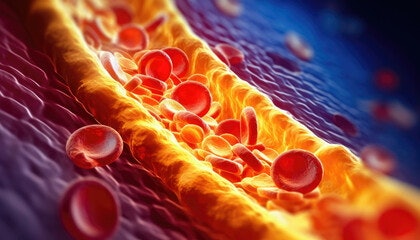AI-driven automated coronary artery calcium (CAC) grading accurately categorized 79% of patients into the same CAC risk group as radiologist readers and cut scoring time from 8.6 minutes to 1.6 minutes in a recent study, according to research presented at the Society of Cardiovascular Computed Tomography (SCCT) annual scientific meeting.
The study suggests that automating CAC scoring can expedite cardiovascular risk assessment reporting and save human burden by roughly 75%, wrote a team led by Harendra Kumar, MBBS, of Dow University of Health Sciences in Pakistan, which conducted research at two Florida hospitals.
“A scalable way to improve productivity, precision, and clinical integration is via AI-driven automation,” the investigators noted.
CAC grading is a key component of cardiovascular risk stratification, but manual evaluation is laborious and prone to inter-reader variation, the team explained. Automated CAC detection is just one application area of AI in CAC scoring and quantification as part of an enhanced approach to cardiovascular risk assessment.
Kumar and colleagues tested the deep-learning algorithm based on a [mask region-based convolutional neural network] Mask R-CNN and assessed its performance as an alternative to manual scoring in cardiovascular risk stratification. Their retrospective analysis included 1,442 patients who underwent non-contrast cardiac CT.
Manually annotated CAC scores provided by expert radiologists trained the algorithm. Beyond accurately categorizing 79% of patients into the same CAC risk group, the algorithm demonstrated 85% agreement with human grading for CAC (p < 0.001).
In addition, AI scoring required 1.6 minutes compared to manual scoring that took 8.2 minutes, Kumar and colleagues reported. Also, in real-world applications, AI found previously unreported CAC of 100 or higher in 14.6% of patients having nongated chest CT, allowing early risk assessment, they added.
Using AI, interreader variability decreased from 12% (k = 0.79) with manual scoring to 4% (k = 0.92, p < 0.001), they noted.
The group used the intraclass correlation coefficient and Bland-Altman analysis to evaluate the agreement between AI-derived and manual Agatston scores. They reported a Bland-Altman mean difference of 2.3 (limits of agreement: -4.1 to 8.7), observing little bias.
“AI-based automated CAC recognition exhibits high accuracy, time efficiency, and prediction value,” the team concluded.
SCCT recognized this study among its 19th Annual Young Investigator Awards, a program supported by an educational grant from Canon Medical Systems USA.
